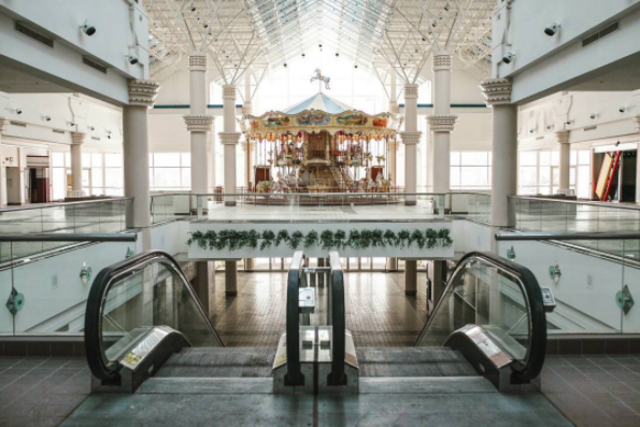
Timothy Rush | Staff Columnist
The so-called “retail apocalypse” has been decimating stores across the country in the past couple of years, and it doesn’t appear to be slowing down. In 2019 alone, we saw the bankruptcy of retail giants Forever 21, Payless and Gymboree. Payless closed all U.S. locations, Gymboree is actively liquidating and selling off its assets and Forever 21 closed more than 100 stores. In a time where we are constantly bombarded with news of how well the economy is doing, economists are saying that the retail industry has entered a deep recession, and that is something we must really be concerned about.
According to the U.S. Bureau of Labor Statistics, more than 15.8 million people are employed in the retail trade as of December 2019. Regarding gender, the industry is one of the largest employers of part-time women workers, who outnumber men almost 2:1 in the industry, according to The Mom Project, a company that aims to help women remain active in the workforce.
When we talk about stores closing across the country, we shouldn’t be so dismissive of it or treat it as an inconvenience. It’s much more than that — we are potentially witnessing one of the worst industry recessions of our time, one that will disproportionately hurt women and working poor more. And it is infuriating that this doesn’t get more attention from policymakers and the mainstream media.
This doesn’t even touch on the phenomena of dead malls, or malls that have largely been abandoned. According to Swiss investment firm Credit Suisse, in 2017, 20-25% of American malls will be abandoned or closed by 2022. One doesn’t have to look beyond Pittsburgh to see the worst of this; Pittsburgh Mills was once a mall valued at $190 million, but was sold at foreclosure for just $100 to Wells Fargo. In 2018, that property was only valued at $6.48 million, when Wells Fargo sold it to Mason Asset Management for $11 million.
The reason why dead malls are important is because of the horrid effects that they have on surrounding areas. Dead malls strongly contribute to decreasing property values and have negatively contributed to investment in surrounding areas. Increasing crime has also been attributed to these malls in some areas, resulting in them often having to be added as a routine stop or patrol area by local police.
Obviously, the gut reaction is to ask what we can do to stop it, and really there isn’t much of an answer. The U.S. government can’t effectively bail out any major retailer that goes under; it’s just not feasible and would easily reach billions of dollars within just a few years. It’s also very unlikely that the American consumer will change their habits in the face of this, as e-commerce is becoming a staple of the American economy and is not very likely to change.
But instead of giving in to this seemingly hopeless situation, we should instead be looking at even more alternative and creative solutions. One solution comes from what many argue is the source of the problem, e-commerce. Kohl’s is an anomaly in the ongoing retail climate as it’s been able to largely survive and thrive amidst this ongoing retail recession. Many argue it is because Kohl’s partnered with Amazon. Since 2017, Kohl’s has been accepting Amazon returns for free in-store and getting people through the doors alone with this setup has benefitted the department store tremendously. Perhaps bringing retail and e-commerce together may be a good solution.
We should also be looking at ways to help alleviate the ill-effects that will come with this ongoing problem. Obviously, job training and organizations that help bring people into employment must be more heavily invested in, as any fraction of 15.8 million retail workers going directly into unemployment would be devastating. Helping these people transition into another field may just be necessary at this point.
And when it comes to dead malls, one idea comes in the form of the American Mall Act, which would aim to secure funding to help struggling malls attract not only new businesses but schools and organizations that could take up residence in that mall. Other ideas include buying malls and converting them into residential living areas and investing in them as mini-renewal projects that help better serve communities.
Regardless of however we want to approach the ongoing retail apocalypse, we must have one. This is a massive industry that largely employs women and working poor, and its ongoing recession and seemingly inevitable collapse will have dangerous repercussions across the country. And we should come up with something soon before it is too late.
